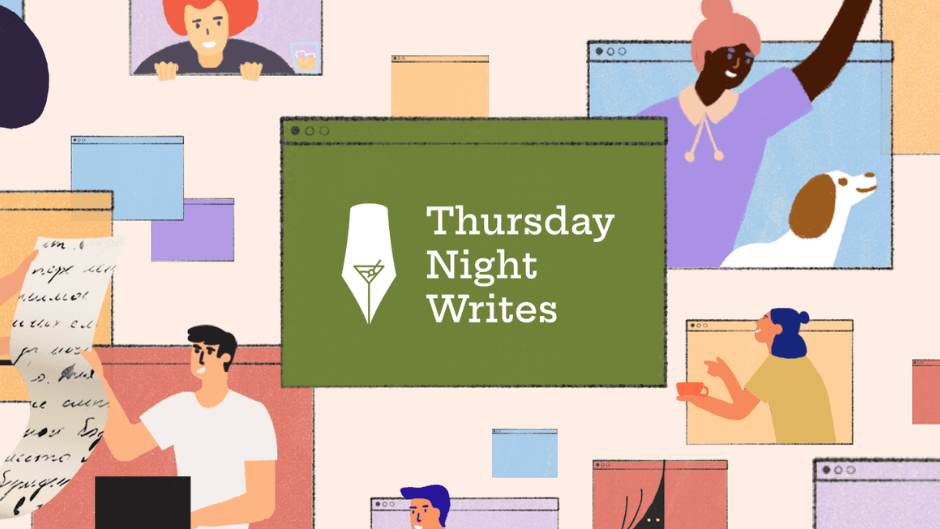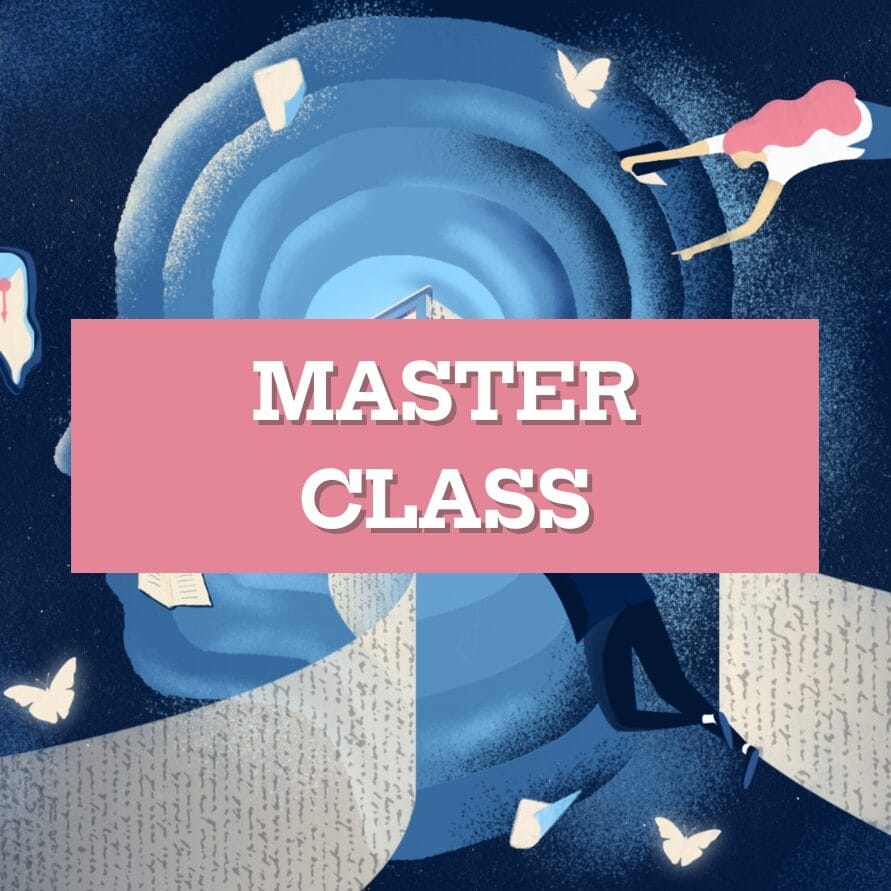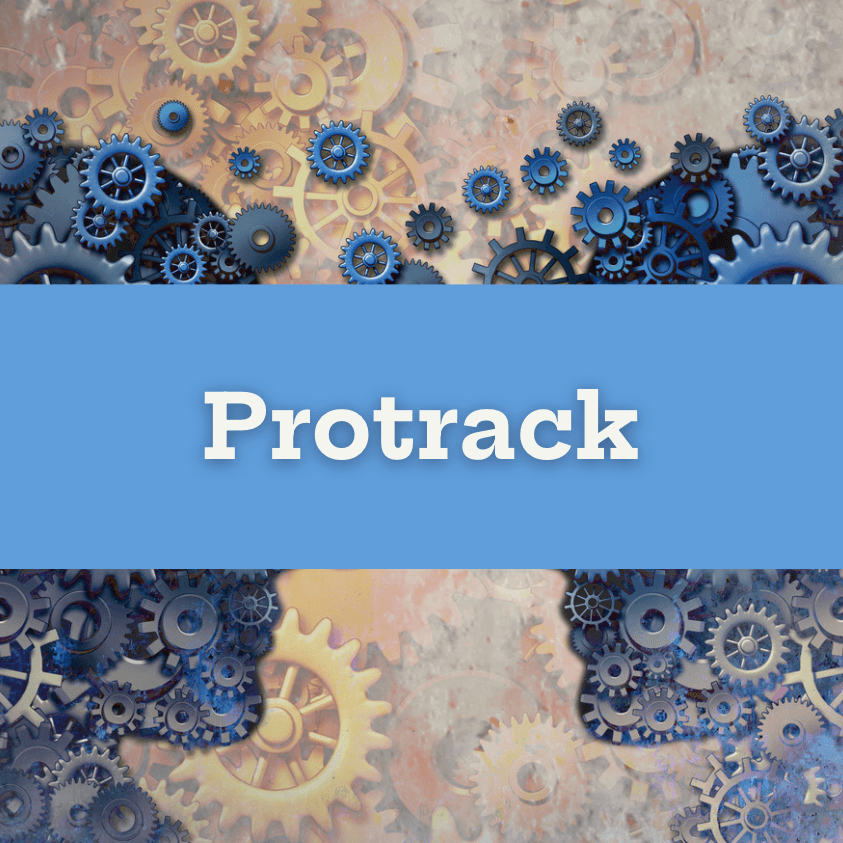This week, we’re going to discuss Beef, a fabulous limited series created by Lee Sung Jin.
We will use Beef to explore two related and extremely valuable concepts for screenwriters: Game and Escalation.
Game and Escalation are concepts that we’re taking from improv. But as we look at the screenplay for Beef, you’ll see that the same tools used for improv can also be hugely valuable for screenwriters.
Usually, when we think about Game, we think about it as the funny thing in the scene.
If you’re doing something funny, they teach you in improv to do it again. That becomes the Game.
And Escalation means you don’t just want to do it exactly the same way again. You want to do it in a slightly different way that escalates it. You want to keep on building up, up, up, up.
Now, many people think of Game as a comedy thing.
It’s obvious how you might Game if you’re writing a sitcom or a sketch. But what if you’re writing a drama? What if you’re doing a historical epic? Do you still need Game? Does Game matter outside of comedy?
I’d like to suggest that dramas, and limited series like Beef, which mix dramatic and comedic elements, have Game, too, and that understanding Game is vital to writers in all genres.
Game is also part of the way the audience tells themselves the story of who the characters are, of what’s really happening in the story, of how the character is changing or not changing, and of how the character is relating to other characters.
Game and Structure are connected. When you become a master of Game, you also become a master of Structure. When you become a master of Escalation, you also become a master of Structure. So, we will be talking about all of that and more in this podcast.
Note that there will be a couple of spoilers for Beef. But we’re going to limit most of our conversation to the way the pilot is structured so that we can start to understand how Game works and how Escalation works. And I’ll warn you before we get to any major spoilers for the rest of the season…
Now, before we get rockin’, there’s some stuff I want to talk to you about that is coming up at the studio that is hugely valuable to you. So, if you enjoy this podcast, check us out live every Thursday night for free. We have a wonderful class with hundreds of writers from all over the world called Thursday Night Writes. So I’d like to invite you to join our community, where you can learn for free from me and top members of the Jacob Krueger Studio faculty.

We discussed the idea that Game is a concept taken from improv. If you are a screenwriter, if you’ve taken any of our classes, you know that we integrate many concepts from improvisation into screenwriting.
There’s a good reason for that: because most of what we are doing as screenwriters is improvising on the page.
We are faced, just like an improv troupe, with a blank page. We might have a sense of who our characters are, but we also might not. We might have, like an improv troupe, just a suggestion, a word, an idea, a premise, a hook… maybe just an image that came into our minds. We have the barest sense of who are characters are.
The truth is, even if we’ve done a whole outline and think we have figured out everything, we don’t know who our characters are until we start writing.
Characters are just like people, and getting to know them is just like dating. It doesn’t matter how much you read about someone’s internet dating profile, you don’t know who they are until you start spending time with them, until you start to understand the Game between the two of you and the Escalation in your relationship.
Similarly, you don’t understand anything real about your characters until you start to understand who they are. And, just like the people in our lives, characters don’t always show up on the page as their full selves, “Ta-da! Here I am.”
Instead, they might show up just like we do, protecting themselves, wearing a “normal” mask.
I’m so normal. I’m really boring. I’m really safe.
Or they might show up wearing a “fabulous” mask.
Look how fabulous I am! This is who I pretend to be!
Or they might show up and start wearing a terrible mask.
I’m a terrible person. I’m awful.
It’s only after you get to know them that you realize, “Wow, that’s a mask.” That there’s somebody soft and vulnerable underneath.
We’ve talked about the improv concept of yes…and on the podcast. We’ll discuss it again because it’s a much more complicated concept than it sounds. It takes years to really learn how to yes…and.
In improv, yes…and begins by giving gifts, sharing with your partner something about them, or something about your feelings about them, so that they can start to figure out who they are, and respond to that gift in a cool way that gets you out of “normal.”
You use gifts and yes…and to begin to tear off the mask or the facade, revealing the actual character underneath.
The same thing is true on the page.
You want your characters to talk to each other and about each other, so you can find those gifts, yes…and, and build on them, just like the writers of Beef.
If you’ve ever been part of an inexperienced improv troupe, the mistake they always make is at the beginning, in those early scenes when you don’t yet know who the characters are, what the Game is, or what the Escalation will be. Those early scenes can feel like death for the improvisers, especially if they aren’t getting immediate laughs.
They feel like the scene’s not going anywhere. They don’t know what is happening. And they don’t yet fully understand what the purpose of those scenes is: not making the audience laugh or doing everything perfectly, but looking for is the Game upon which everything else in the show is going to build.
Experienced improv troupes, just like experienced writers, let those scenes play out, even when they’re terrible. They’re need to let them keep going, until they find that one weird thing, that one weird pattern that they’re going to play with and build upon and escalate for the rest of the show.
But in an inexperienced improv troupe, invariably, some freaked out young improver runs across the stage, “editing,” the scene, and foolishly ending before anything has a chance to actually manifest, before anyone understands what the scene is about, what’s happening, what’s cool, what’s weird—what’s the Game?
Which means the whole troupe has nothing to build upon for the rest of the performance, and pretty soon everything goes off the rails, with everyone out-crazying each other trying to make something “funny” happen, because they have no foundation to build on.
The truth is, writers make exactly the same mistake.
You’ve probably made this mistake.
You sit down to write, and it’s not one of those days when the muse is coming.
You’re writing, but your characters aren’t really speaking to you yet.
It’s like one of those boring conversations you have every day.
Hey, how you doing?
Good, good, how’s your day?
Oh, my day’s not bad.
Blech.
You write like this for ten minutes, and you want to die.
You’ve got a freaked-out voice shouting in your head—just like that inexperienced improv artist. “This sucks! This is boring! Nothing is happening! I’m just going to give up on writing today.
There’s nothing here. I just can’t.”
And suddenly you feel an irresistible urge to “edit.” To “run across the stage” and put this dying scene out of its misery.
We want to give up. Or at the very least, drop this crappy scene and try writing another.
Or maybe we freak out and just push to make something crazy happen.
All because we are so afraid to just hang out with our characters.
If you watch experienced improvisers, they allow those early scenes to keep playing out.
They allow those early scenes to play out even if they’re not perfect, not that exciting, not that funny, not that dramatic… even downright terrible.
They allow those first scenes to play out until they find the Game.
Game is a complicated concept. In my Master Class, we might spend a whole day on Game.
But, on the simplest level, Game is that one weird thing, that one fun interaction that sets the stage for the characters and their dynamic.
Once we understand the Game of the scene, all of writing becomes so easy. Just like all of improv becomes so easy.
Even if the Game isn’t cool yet, if you keep doing it and keep escalating it, (meaning every time you do that Game, you make it one step bigger, bigger, bigger, bigger, bigger), the audience starts getting drawn into the story.
We, the audience, start to tell ourselves the story of what’s going to happen.
In a horror movie (or an episode of Curb Your Enthusiasm, which is essentially the same thing) we might be screaming silently at the character, “no, no, no! Don’t do it!”
In a thriller, we might be finding our blood pressure rising as we anticipate what’s going to occur.
And in a comedy, we might find ourselves laughing at the craziness we know is coming.
We start to predict what’s happening.
It’s then your job, as the writer, to simply follow the pattern, the Game and the Escalation, you’ve already created, give the audience what they want and also surprise them in the way that you give it.
So, Game is that one weird thing in the character, in the interaction, that you’re going to do again and again and again. Escalation means every time it happens, you’re never going to let air out of the balloon. You’re always going to blow the balloon up a little bit bigger. There are many ways to do that. There are lots of variations.
Escalation means that every permutation of the game is going to out-do the one before in some way. It’s never going to have exactly the same valence, exactly the same feeling.
You’re never going to follow a really good thing with a less good thing, a really hilarious thing with a slightly less funny thing, or a more destructive thing with a less destructive thing.
You’re always going to escalate.
The balloon just keeps on getting more full. You never want to let the air out of the balloon.
Now, let’s talk about how Game and Escalation work in the limited series, Beef.
Just like in a good improv show, it starts from the very first scene.
At the beginning of Beef, we meet Danny Cho, played by Steven Yoon. He’s at a hardware store returning, or trying to return, a crapload of barbecue grills.
We, the audience, have no idea why Danny has so many grills. (And it’s possible, in an early draft, the writer might not either).
Just like an improv troupe, we’re learning about Danny for the first time at this moment, and he’s already arrived with a gift—a little weird mystery we are curious to unravel.
We don’t know why Danny has all the grills to return, but we do know that he does. Which means we already have that little weird thing to play with.
He’s trying to return these grills, and the clerk is giving him a hard time. (Eventually, we’re going to learn that the return game is a game that Danny plays all the time. He keeps on buying and returning grills again and again and again).
But for now, the Game is handled with no exposition for the audience. We don’t know why he’s doing it. We don’t know what it means. We just know that he’s doing it. And the that intrigues us. And this time, we watch Danny make a choice that Escalates. That’s different from every other time he’s returned the grills.
This time, he gives up and just takes those grills back with him, sticks them back in his truck.
Look at how much work this scene is doing. It is the one moment of “ordinary world” in the entire limited series Beef. The only moment we’re going to see what Danny’s life was like before all the madness starts.
Just like in an improv show, it’s the scene that everything is going to be built from. It’s just this little glimpse, but it’s already a Game.
I’m not going to spoil it for you yet. I’ll warn you before I do, but those grills are going to come back. And we’re going to play the grill Game again in different ways that Escalate, and that actually end up giving us tremendous insight into Danny’s character, and eventually, into the why of what happens next…
Danny is about to pull out of the hardware store. He’s super pissed-off. He’s got a bunch of grills that he doesn’t want. He’s got a “beef” with the clerk at the hardware store who wouldn’t let him return them. He’s pissed-off at himself for giving up. He’s pissed-off at the dude for not letting him return them. He’s pissed-off for a bunch of reasons we don’t even know yet…
He’s about to pull out of a parking lot, and a woman driving by in an SUV cuts him off, lays on her horn, and flips him the bird.
This, again, is Game. Just a little Escalation of his bad experience at the hardware store.
The Game is Amy Lau, played by Ali Wong, flipping Danny off. And though in any other series, a moment like this would have been nothing, in Beef it’s going to be mined for 10 incredible episodes of comedy, drama and Escalation.
This is the beginning of a beef between Amy and Danny.
A stranger in a white SUV is going to lay on her horn and flip Danny off, and it’s going to lead to a “Hatfields and McCoy’s” Game between Amy and Danny that’s going to escalate and escalate and escalate.
This Game is built in typical improv fashion—simply allowing a character to have an extreme reaction to a relatively normal “gift.”
Anybody else in the world would probably respond to Amy’s flip-off with an annoyed shrug, or maybe a brief outburst of road rage, and then go about his business. But that’s not what Danny does. What Danny does is Escalate.
Danny chases Amy’s white SUV in his crappy truck—and we’re catapulted into this wild road rage action sequence that launches us into the journey of Beef.
It all starts because Danny yes…ands Amy’s Game.
She’s gonna flip me off? I’m gonna flip her off! She’s gonna lay on her horn? I’m gonna chase her!
We get this crazy high-speed chase between these two crazy people, neither of whom can back down from their “beef.”
And that is the Game.
What starts as just a high-speed road-rage chase is going to escalate and escalate, in episode after episode after episode of Beef.
We are going to see the extent to which these characters are willing to go to pursue their Beef. That is the whole Game. That is the whole series.
What’s beautiful in Beef is that the Game plays out not only comedically, but also dramatically.
Ultimately, this same Game is going to reveal everything we need to know about who these characters are, into why these characters are, into how these characters are changing.
What’s going to develop over 10 episodes of the Beef series is a relationship between these two enemies.
Sure, on one level, Beef is just an update of the Hatfields and the McCoys.
But audiences don’t show up just to watch characters fight. They show up for relationships. And as we can see from Beef, Game is a powerful way to build relationships between characters.
Earlier in this podcast, I mentioned that at the beginning of every improv scene, you want your characters to talk to each other about each other. You want your characters to get vulnerable. You’re trying to build a relationship, and to figure out the Game of that relationship.
What matters in the relationships in Beef is not the big fights, as much fun as they are to watch. That is just part of the Game.
What matters is the way that that Escalation of the Game starts to tie these people together.
What matters is the way that Danny and Amy end up infiltrating each other’s families, bonding themselves to one another in a really dysfunctional, messed up way, the way the Game is going to destroy them, and also, the surprising way it’s going to connect them.
As you can see from Beef, what makes Game such a powerful tool for writers is the way that simple Escalation yields new patterns for you to play with.
You might just start off just repeating and escalating a pattern, but soon, you’re going to start to find variations on that Game that complicate the characters lives in ways you didn’t anticipate.
From this point forward, there are going to be spoilers…
Over 10 episodes of Beef is we’re going to watch the Game between Danny and Amy grow and grow and grow. It’s going to culminate in the final episode, in a repeat of the same Game– literally the same Game– that we saw at the very beginning.
Now, at this point, these characters have gone through hell. People have died. Houses have been burned down. Families have been destroyed. Hostages have been taken. There’s been a shootout. It has gone to crazy extremes.
Both Danny and Amy have somehow escaped an out-of-control hostage situation that’s resulted in multiple deaths. Amy is now driving her fancy-ass new SUV (because Amy has gone from a successful small business owner to having her plants, her brand, and every Forsters Hardware Store in the world. She’s gone big. And she’s now driving a much bigger SUV).
And Danny, who’s also gone big in his own way, has stolen a giant Hummer from Amy’s boss, Jordan, who, at this point, has died in the most hilarious and awful way.
Danny and Amy both have an opportunity to escape, just like in that very first scene. They can simply drive away from each other and go on with their business.
But instead of escaping, what do they do? They play the same Game.
They flip each other off again, and launch into another high-speed road-rage-fueled chase sequence.
They do the same thing they did in the first episode! Except this time, it’s once again Escalated. Rather than driving through a garden, they are driving through the winding roads and hazardous cliffs of the mountains.
By the time it’s over, both giant SUVs will both have tumbled down a cliff.
You can see the writers are literally playing the same Game.
They’ve circled back to this Game again and again and again: her SUV, his truck, her SUV, his truck, bigger, bigger, bigger.
Her business, his business, her business, his business, bigger, bigger, bigger.
Escalation, Escalation, Escalation.
And now they’ve come full circle, and they are still playing the same Game.
The Game of the characters Amy and Danny in Beef also suggests a game for the writers of Beef, that helps focus their creativity from episode to episode. In other words, it leads to an Engine.
If you want to write 10 fabulous episodes of Beef that feel both the same and different from one another, all you have to do is keep keep giving Amy and Danny easy ways out of their “beef,” so we can enjoy watching them make their own hell by choosing to keep escalating it.
(In this way, Beef works a lot like Breaking Bad, in which the writers play the same game with Walter White).
For 10 episodes of Beef, the same Game just escalates, and escalates, and escalates. Until we come full circle.
And coming full circle, and having crashed, and being trapped out in the middle of the wilderness, we get the final variation, the final Escalation of the Game between Amy and Danny in Beef.
And now I’m going to get into some serious spoilers for any of you who haven’t seen the ending…
Ultimately, what we’ve been watching over the course of this movie is a relationship.
As the series unfolds, as an audience, we’re starting to realize that in a different world, Danny and George, Amy’s husband, would probably be friends.
Pushing that Game even further, we’re starting to realize is that Amy and Danny, these two characters that seem so different, with this giant “beef” between them—are actually the same character.
They’re actually exactly alike.
In improv, we’d call them peas in a pod.
And by the time it’s over, they’ll have gone on a giant drug trip that will have taught them the thing that we already realized…
Because we, as the audience, are also part of the Game.
We, the audience, are telling ourselves a third story every time we watch a show or a film.
In Beef, there’s Amy’s story, and the story she’s telling herself in her Game.
And there’s Danny’s story and the story he’s telling himself in his Game.
But there’s a third story, which is the story that we are telling ourselves about both of them.
And this is the wonderful thing about Game: Game is how we, as screenwriters, make things both surprising and inevitable.
Game is how we escalate and escalate and find variation after variation after variation until the thing happens that the audience didn’t see coming, but that they know they should have.
If you’ve studied 7 Act Structure with me, you know that there’s primary structure and secondary structure.
The primary structure is the story of the character’s journey, how the character tells themselves the story of the show, the movie, the limited series.
Danny’s story:
I was just an innocent, good guy, contractor, trying to return a bunch of barbecues, and this crazy woman flipped me off, and she pushed it too far, and she wouldn’t let it go, and I had to do something.
And Amy’s story:
I am just a successful businesswoman balancing a lot of stress and a needy family, and this maniac chased me… and I was not going to let that go. I’m not going to be treated that way. And he just kept escalating and escalating. He wouldn’t let it go. He kept violating my the sanctity of my life, till I had no other choice.
Both of these characters have the same story. But we’re telling ourselves a third story, one that the characters aren’t realizing themselves:
Oh, wow… Amy and Danny are kind of similar.
Oh, wow…Amy and Paul, Danny’s cousin, have some real chemistry. They actually connect in ways that she and her husband don’t.
Oh, wow… Danny and George, Amy’s husband, kind of connect as well…
Oh, wow... Amy and Danny are kind of making all the same decisions. They’re almost like peas in a pod. They’re almost exactly alike.
And of course, by the time we’re at the end of their drug trip and their crazy experience, Amy and Danny are together as they were always meant to be.
You see, we’re not just using Game to play patterns. We’re using Game to build relationships. We’re using Game to build inevitability and surprise at the same time. We’re using Game to build structure and journey.
So next time you have the urge to step away from one of your scenes, I want you to think about Beef.
I want you to think about Game. I want you to stop looking for what’s wrong or what’s boring. And I want you to keep writing until you find that fun, unusual thing.
It might be a dark thing. It might be a sad thing. It might be a dramatic thing. It might be a horror thing. But I want you to find that fun thing, that character thing, that thing that happens between these two people.
And then I want you to escalate it, and escalate it, and escalate it.
Ask yourself, what relationship does that build? What journey does that build? What structure does that build between these two characters?
All of writing is relationships, just like all of life is relationships. We are what we do in relation to other people. And in this way, we are all playing Games all the time.
I’m not talking about playing “games” and manipulating people.
I’m talking about playing the Game of falling into our weird, quirky patterns that both create transcendence and drive us crazy, that both help us and destroy us, that keep us stuck and help us change.
If you allow yourself to get curious, you will soon start to realize that it’s your Game; it’s who you are and how you are and the patterns you play out and the patterns you break with other people that actually creates the change.
And in fact, we can see this with Danny.
We start off and he’s just a weird guy returning a bunch of grills. Why is he doing it? We don’t know. Maybe the guy likes Hibachis.
But if we’re good writers, we’re going to realize those Hibachis are part of the Game. A little mystery we have not yet solved.
We’re going to come back to that Game.
Because later in the season, we’re going to see Danny setting all of those grills filled with coals on fire in his apartment. And we’re going to realize, Oh, Danny was trying to kill himself in that first scene.
We’re going to realize, Oh, Danny was actually choosing life over death that day that he got cut off.
We’re going to come to realize, Oh, when that guy didn’t allow him to return the grills, it was like signing a death certificate for him. It was like not allowing him to live.
And suddenly we have a whole other subtext to why this “beef” started in the first place.
And in fact, all the way on the other side, we’re going to play the Game of fire.
By the time Beef is over, there’s going to be a huge fire that destroys the thing that Danny loves more than anything. We’re going to play that Game again.
And when we get all the way to the end, it’s actually going to be that little Game of the charcoal grills– which seems, at first, so much less exciting than the Game of flipping him off and the chase, that game of the grills, which seems so small, which seems like a quiet little quirky thing, that little taste of normal– it’s actually that little weird thing, when Danny shares it with Amy, that humanizes him for her, that allows her to see him in a completely different way, that allows her to reframe the entire story of their relationship from the very beginning, and that opens the door to these two crazy people actually ending up together.

I hope that you enjoyed this podcast. If you are getting a lot out of it and it’s helping your writing, come and study with us. We have a free online class every Thursday night, foundation classes in screenwriting and TV writing, a Master Class for those of you who want a grad school education at the tiniest fraction of the cost, and a a wonderful ProTrack mentorship program that will pair you one on one with a professional writer, who will read every page you write and mentor you through your entire career at less than you would pay for a single semester of grad school.







